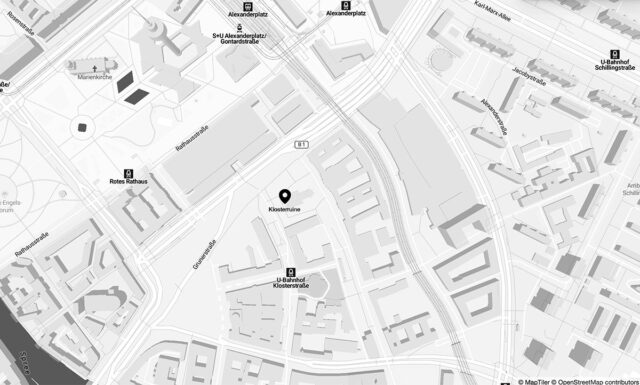Contact
Klosterruine Berlin
Klosterstr. 73a
10179 Berlin
Opening Hours
Mai – September:
Monday – Sunday, daily 10am – 6pm
Free admission
The installations are currently only viewable from outside.
The Klosterruine is accessible via the side entrance. Further information on accessibility and barriers can be found online in the Access Rider in the menu Accessibility.
The Klosterruine Berlin is an institution of the Department of Art, Culture and History in the Mitte district office.
Contact
info@klosterruine.berlin
Head of Department: Dr. Ute Müller-Tischler
ute.mueller-tischler@ba-mitte.berlin.de
Leading Curator, Division Contemporary Art: Eylem Sengezer
eylem.sengezer@ba-mitte.berlin.de
Exhibition Management and Infrastructure: Katrin Winkler
katrin.winkler@ba-mitte.berlin.de
Programme Coordination and Curatorial Assistance: Alin Daghestani
alin.daghestani@ba-mitte.berlin.de

Public Transport
U2 Klosterstraße
U8, U5, S5, S7, S75 Alexanderplatz
Bus 248 Littenstraße
Postal Address
Bezirksamt Mitte von Berlin
Amt für Weiterbildung und Kultur
Fachbereich Kunst, Kultur und Geschichte
Mathilde-Jacob-Platz 1
10551 Berlin